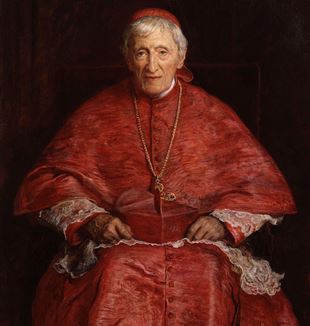
Tillman: on Newman and Giussani. Tradition, Freedom, and Friendship.
The theme of experience catalyzed an entire work session. The highlight was a desire for an objective anchor, opposing any subjectivist reduction.Several discussants have raised the issue of secular education. Could you comment on how Newman’s thought is relevant to the secular educational setting?
Newman at Oxford felt that what was most important for Catholicism was living in these small communities. In England these small residential communities are called colleges. That’s where tutors and students live together and it’s the place–he calls it “the shrine of our best affections”–that is like a second home to us. For Newman, what’s essential is the community that you live within as you are growing intellectually.
What is the role of the unifying hypothesis in the context of these communities?
Let me say that no matter where one’s calling is in the world, in secular or religious realms, if one’s home is a place of solace, comfort, moral formation, and love, then one has the base on which one can function in the world. Especially in the family, the explanatory hypothesis can be seen because the parents by their example and actions communicate to their children the “way things are.” Though the children may be unconscious of it, that’s what they carry with them as their tradition, the way they have been inculcated with how things are. That is what, as they develop through education, they have to face as outside themselves. They have to recognize it first and see it as a problem, something that they have to examine and to verify in terms of their experience now as growing young adults.
How might our decisions with regard to curriculum be shaped by this presentation of a unifying hypothesis and tradition?
I don’t think we pick. Tradition is given. There are many traditions within what we call the Western Tradition. There are certain books and classic works of art that have been shown over centuries to best form the young. Matthew Arnolds says we should study the best that has been thought and written. That’s why I’m into the “Great Books.” In terms of curriculum, the best that’s been thought and written, what the human spirit has made, tells us who we are as humans, and is a kind of laboratory for our experimentation for how to live. For example, while sitting in class discussing Homer with my students, they can see what the journey of life has brought to this man who has suffered many things and eventually arrives home. Dante’s Divine Comedy would be another great work for conveying life as a journey.
As you engage in this process with your students, what aspects of culture or the American mentality do you see as points of challenge or of leverage?
The thing I most love to challenge is the view that one opinion is as good as another. I try to reason with them to see that knowledge and opinion are two different stances toward the world. There are nice arguments you can raise to challenge the position that one opinion is as good as another. The method would be to challenge what is accepted in their culture–in our culture–in relation to that elemental experience that Giussani talks about. In other words, does this view or position or possession fill up a need that I really have as a human being? Does it satisfy my yearning, fill my emptiness?
How do your students respond to this approach?
I think they’re shocked if you tell them there is such a thing as truth. That’s really easy to argue with them about and to show them, because they know the difference between a true statement and false statement. If you admit that there’s a true statement and false statement, you’re admitting that one opinion is not the same as another and that there is such a thing as truth. I think it’s part of the good news, and I think they understand it as that. Implicitly, they want to know that there’s such a thing as truth and that it can be found, in its simplest form in logical truth and, in a more complicated form, in the ways we seek and describe truth.